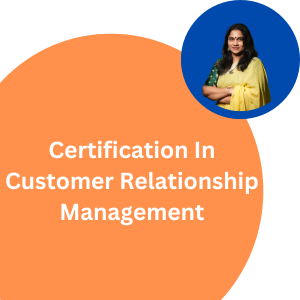Welcome to the dynamic realm of Customer Relationship Management (CRM), where the art and science of fostering meaningful connections with customers converge for unparalleled business success. In an era defined by heightened customer expectations and evolving market landscapes, mastering the intricacies of CRM has become not just a strategy but a vital imperative for organizations across industries.
At its core, CRM embodies a strategic approach that transcends traditional transactional interactions, aiming to create lasting and mutually beneficial relationships with customers. It encompasses a multifaceted array of tools, technologies, and methodologies designed to understand, engage, and delight customers at every touchpoint of their journey.
This journey unfolds as a symphony of customer data management, insightful analytics, personalized marketing, streamlined sales processes, and responsive customer service. By harnessing the power of CRM, businesses can not only meet but exceed customer expectations, fostering loyalty and advocacy that propel them ahead in today’s competitive markets.
Join us on a transformative exploration of Customer Relationship Management, where we delve into the strategies, technologies, and practices that redefine how organizations connect with their audience. Whether you are a seasoned professional seeking to optimize customer interactions or an aspiring entrepreneur aiming to build a foundation of customer-centric success, this journey into CRM promises insights and tools that will shape the way you approach, understand, and value your most valuable asset — your customers.
A comprehensive Customer Relationship Management (CRM) program covers a diverse range of topics, addressing various aspects of managing customer interactions and relationships. Here is an overview of key topics typically covered in CRM training:
Introduction to CRM:
- Definition and importance of CRM.
- Evolution of CRM in business.
Understanding Customer Behavior:
- Analyzing customer needs and expectations.
- Customer segmentation and profiling.
Data Management and Integration:
- Customer data collection and organization.
- Integrating CRM with other business systems.
CRM Software and Tools:
- Overview of popular CRM platforms.
- Selecting and implementing CRM software.
Sales Force Automation (SFA):
- Automating sales processes.
- Lead and opportunity management.
Marketing Automation:
- Implementing automated marketing campaigns.
- Targeted and personalized marketing strategies.
Customer Service and Support:
- Providing excellent customer service.
- Handling customer inquiries and complaints.
Customer Engagement Strategies:
- Building and maintaining customer relationships.
- Strategies for customer retention and loyalty.
Social CRM:
- Leveraging social media for customer interactions.
- Monitoring and responding to customer feedback on social platforms.
Mobile CRM:
- Enabling CRM functionality on mobile devices.
- Benefits and best practices for mobile CRM.
Analytical CRM:
- Utilizing data analytics for customer insights.
- Making data-driven decisions.
Customer Loyalty Programs:
- Designing and implementing loyalty programs.
- Measuring the success of loyalty initiatives.
Cross-functional Collaboration:
- Integrating CRM across departments (sales, marketing, customer service).
- Improving communication and collaboration.
CRM Metrics and Key Performance Indicators (KPIs):
- Measuring the success of CRM initiatives.
- Key metrics for evaluating customer relationships.
Ethical Considerations in CRM:
- Privacy and data security.
- Ensuring ethical practices in customer interactions.
CRM Implementation and Adoption:
- Planning and executing CRM implementation.
- Strategies for user adoption and training.
Trends in CRM:
- Emerging technologies in CRM.
- Keeping up with industry trends and innovations.
Case Studies and Best Practices:
- Real-world examples of successful CRM implementations.
- Learning from best practices in CRM.
By covering these topics, a CRM program aims to provide participants with a holistic understanding of customer relationship management, from the foundational concepts to advanced strategies and technologies that optimize customer interactions and contribute to overall business success.
Implementing a robust Customer Relationship Management (CRM) system provides numerous benefits for organizations across various industries. Here are some key advantages and ways in which CRM proves to be highly useful:
Enhanced Customer Relationships:
- CRM allows businesses to build and nurture stronger, more meaningful relationships with their customers.
- Centralized customer data enables a more personalized and targeted approach to interactions.
Improved Customer Satisfaction:
- With access to comprehensive customer information, organizations can better understand and meet customer needs.
- Efficient issue resolution and personalized service contribute to higher customer satisfaction.
Increased Sales Revenue:
- CRM systems streamline sales processes, automate tasks, and provide insights into customer preferences.
- Improved lead management and targeted marketing efforts lead to increased sales opportunities.
Optimized Marketing Strategies:
- CRM platforms enable targeted and personalized marketing campaigns.
- Analyzing customer data helps in identifying effective marketing channels and strategies.
Efficient Customer Service:
- CRM tools enhance customer service by providing quick access to customer histories, preferences, and interactions.
- Streamlined communication and issue resolution contribute to efficient customer support.
Data-Driven Decision-Making:
- CRM analytics provide valuable insights into customer behavior and trends.
- Organizations can make informed, data-driven decisions to improve operations and strategies.
Increased Cross-Selling and Upselling:
- Understanding customer preferences allows for targeted cross-selling and upselling opportunities.
- CRM facilitates identifying additional products or services that align with customer needs.
Enhanced Collaboration and Communication:
- CRM systems promote collaboration across departments, fostering better communication and coordination.
- Teams can work together seamlessly to provide a unified customer experience.
Improved Forecasting and Planning:
- Accurate data and analytics support better forecasting of sales and market trends.
- Organizations can plan and allocate resources more effectively.
Customer Retention and Loyalty:
- CRM helps in identifying and addressing customer concerns promptly.
- Loyalty programs and personalized interactions contribute to customer retention.
Streamlined Business Processes:
- Automation of routine tasks and workflows reduces manual effort and enhances efficiency.
- Organizations can focus on core business activities rather than administrative tasks.
Adaptability to Customer Needs:
- CRM allows businesses to adapt to changing customer needs and market trends.
- Quick adjustments can be made to strategies based on real-time data.
Competitive Advantage:
- Organizations with an effective CRM strategy gain a competitive edge.
- Providing superior customer experiences sets them apart in the market.
Scalability and Growth:
- CRM systems are scalable and can adapt to the growth of the business.
- They provide a foundation for sustained business expansion.
Enhanced Communication Channels:
- Integration with various communication channels, including social media, allows for a multichannel approach.
- Organizations can engage with customers on platforms of their choice.
In summary, CRM is immensely useful for organizations seeking to optimize their customer interactions and drive business success. From improving customer relationships to increasing revenue and streamlining operations, the benefits of CRM extend across multiple facets of an organization’s functioning, ultimately contributing to sustained growth and competitiveness.



